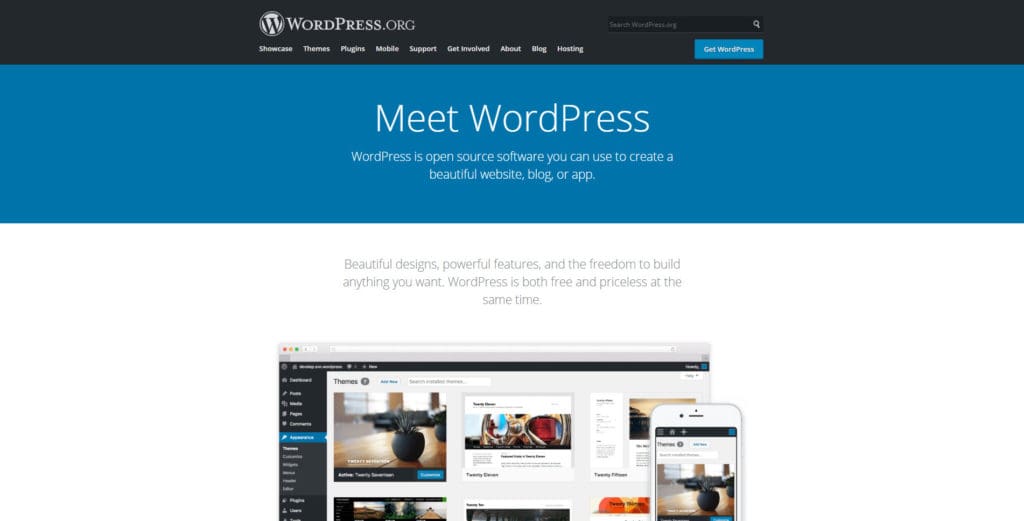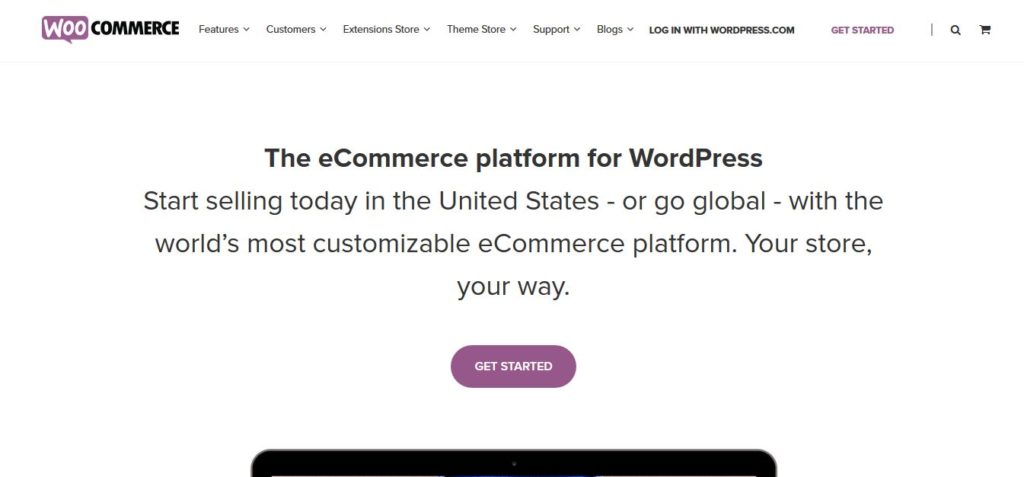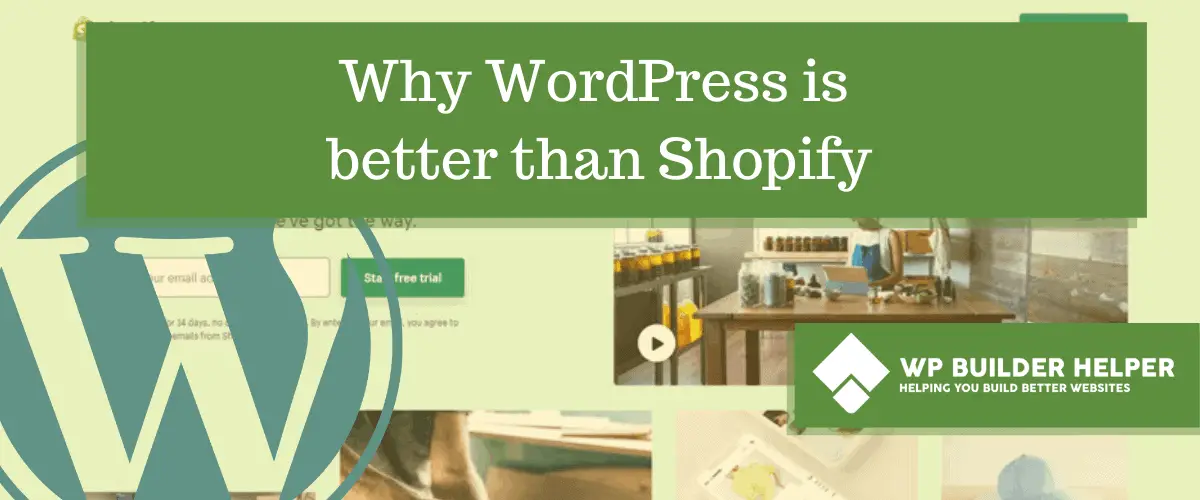So you are building an ecommerce store and you have heard of WordPress, but you have also heard of Shopify. Which one is the best for ecommerce, stay tuned we are about the solve that mystery.
Why WordPress is better than Shopify? Shopify makes a package similar to that of Wix or Sqaurespace by offering a low monthly fee for a list of features. WordPress is open source and allows you to customize your website to save money in the long run. WordPress can also do more than just ecommerce, making it the perfect solution for someone who wants a more complete business.
Let’s go over the good and bad of WordPress and explain why you may want to pick it as your next ecommerce project. We will dive into both the good and bad of both platforms.
Numbers and Facts of WordPress vs Shopify
When someone is first deciding if they want Shopify or WordPress numbers will play a part in to their decision. People often go for the more popular thing, but is that always the right case?
Well, as it turns out, no. The market tells us that through history there have been plenty of underdogs who have taken the lead in things that people never thought they should.
WordPress has been the king of these charts and graphs with something like a market share of 30%. I will include the top five platforms below just so you can compare.
| % All Websites | % CMS Market | |
| WordPress | 35% | 62% |
| Joolma | 2.5% | 4.4% |
| Shopify | 2.1% | 3.6% |
| Drupal | 1.6% | 2.9% |
| Squarespace | 1.5% | 2.6% |
But when you look at the whole picture rather than what’s popular you start to see cracks in the market that didn’t exist before and this is a place that Shopify has really made a name for themselves. It’s important to note that while this blog and my YouTube channel is focused on WordPress content, I have referred many clients to Shopify.
Shopify is a niche solution that works very well in certain situations when WordPress just will not. I have said it before and I will say it again. There is no one option that fits every single problem for websites.
The best way to decide is to compare the two options in front of you and then pit those options against other options in the market that you find that you are interested in. Eventually one of those two options will become the winner and you will have your solution, right or wrong.
So before we talk about each of these solutions just beware that these are not the only two choices, you have many choices for ecommerce and you need to make the best decision for your situation.
Advantages of WordPress with ecommerce

WordPress is the king of websites right now with a market share that makes many of their competitors wish they had their kingdom. But with just popularity alone, WordPress itself is not a complete solution for ecommerce.
Today we will look at the whole picture and what you can expect if you want to run an ecommerce store. The principles that we will build this case on is that someone wants an ecommerce store with the ability to upgrade in the future.
So let’s talk about a few of the biggest reasons WordPress is the right choice if you want to build an ecommerce store that is future proof.
1. WordPress is Flexible
WordPress is an open source software which comes with no ties to anything that is paid. You could start an ecommerce business with a free store and never pay a dime other than hosting and domain names.
This is something you won’t find with Shopify. WordPress allows you to install plugins and themes from any provider giving you access to an array of options.
Because of the large number of options that you have, you will also find that you can make your website into anything. What happens if your ecommerce store does great, but then you need a membership website, you can do this too with WordPress. The ability to adapt and evolve from one type of website into another is a strong point for WordPress.
Many people will say that they created it to be a blog but then had a CMS thrown on to it, which is true. However, when you look at what WordPress is today, you get a better image of what you can expect down the road. WordPress is one of the most flexible solutions I have ever used and has an answer for everything.
The greatest thing about WordPress is because it has an answer for everything most times it doesn’t have one solution but many for the same problem. This wide amount of options can lead to paralyzes by analyzes, but at the same time gives you the greatest amount of flexibility.
2. WordPress is open source
WordPress will never cost a dime because the project itself is open source, meaning that you don’t pay for the software. This is one of the biggest reasons people with low or no budget choose it over something like Shopify, which only has a free 14 day’s trial.
A business should never be hindered because you have no money to start it, but yet we are expected to take on loans and other methods to build a business. Things like the Lean Start up have changed how people start businesses today.
WordPress costing nothing lowers the cost, for those people are on a budget when they are starting a store or ecommerce shop.
3. WordPress has a giant market of 3rd party solutions
One of the strongest things about WordPress similar to their flexibility is their third-party solutions, which give WordPress a majority of its strength as a platform. Things like plugins, themes, services providers and even hosting can specifically cater to WordPress solutions.
Because WordPress is more open they have more 3rd party solutions which means when you get stick with a problem, you have more things that can fix that problem that you might know. Doing a quick search in the WordPress plugin’s directory which has many hundreds of thousands of plugins can sometimes bring you to the correct solution.
This open market ecosystem can give you plenty of options, some free and some paid, which can solve your specific problem without you having to change anything.
Disadvantages of WordPress with ecommerce

WordPress does not differ from any other service that is on the market for building a website. While people may talk up WordPress, a quick Google search will bring you more realistic complaints about the platform.
So it’s important than when we are comparing two services that we look at both the good and the bad before we decide. Picking the right service to solve a problem is about analyzing what works and what does for your specific situation and problems.
1. WordPress can cost more
Just as we mentioned above, WordPress has so many options that these options can overwhelm you when you are looking for the right solution. Many times you will have to pay for a solution that might otherwise be free on platforms like Shopify, which might include them as part of your package.
WordPress has no packages and because this it has the possibility to balloon up into larger amounts of money than what you expected. Because of this very reason you need to scale your project appropriately if you want to make sure that you are not breaking the bank.
2. WordPress has security, maintenance and hacking issues

WordPress unlike Shopify is not an ecosystem which is controlled by another person and because of this you can run into problems. The Shopify ecosystem is like renting a car, it’s not your car, it’s another company’s car but you can still use it. WordPress is like buying a full car with loans and monthly payments.
It’s this fact that often confuses people because WordPress has things that you need to worry about like security, maintenance and even hacking attempts. Someone who is not doing regular WordPress things will find out quickly that your website can become a hassle.
Shopify mostly handles most of these things for you, which makes it a better solution for someone who will not keep up with maintenance and other things. If you want to learn more about keeping WordPress safe, check out our article here.
3. WordPress has less support requires 3rd party help
WordPress is not a solution for someone who doesn’t want to get their hands dirty. If you want help, you will need to either pay for a service or search Google for a solution. Someone who would rather talk to a person on a phone or use chat will find WordPress lacking.
The other downside to this is that you will have to pay a decent sum of money to get your solution sometimes if you aren’t tech savvy. WordPress doesn’t offer any support other than forums and Google searches, which can be fairly accurate in fixing your problem.
Some people do not want use forums or Google to solve their problems. Some would much rather pay someone or a package to solve their issues.
Good news is WordPress do have these services that exist and will help you with problems, the bad news is they will often be more expensive than other services you might find on Shopify’s website.
Advantages of Shopify with ecommerce

Now that we have talked about the pluses of using WordPress, you might think there is nothing good about Shopify. I am here to tell you that you would be wrong in making that assumption.
I have referred clients to Shopify when they needed a solution that fit Shopify’s specific model. Some clients want phone support and other things that WordPress does not have. These things can only be solved by using a platform like Shopify to fix the problem.
1. Shopify has more Support
Shopify has a monthly plan, which includes things like support and hosting. If you aren’t the most tech savvy person, you can find yourself in a pickle with WordPress. Shopify solves this by offering support that can solve some of those problems for you.
Just be wary because while we are including this on the list of things they do right, it’s not uncommon to have an occurrence with a bad support rep. Still, we can’t deny that support is still included and that can be a good thing for some people who need more hand holding than others.
2. Shopify was specifically made for Ecommerce
Unlike WordPress, which was originally a blogging platform that got converted into a CMS, Shopify has always been an ecommerce. Ecommerce is something that Shopify has focused on as a company, and it’s a place that they really excel in.
WordPress has become a catch-all for building a website because of the flexibility, but it’s a jack of all trades and master of none. This is the area that Shopify has capitalized on by making a platform that is specifically for people who only want ecommerce businesses.
While Shopify is more than capable of handling things like blogs and all other manner of websites, it doesn’t change the fact that ecommerce is their specialty and looking at the numbers they do it well.
Disadvantages of Shopify with ecommerce
With all the reasons we listed above you might think that Shopify is also without fault, but that would not be the case. Remember by original statement, no one specific service meets all the demands for everyone else.
Shopify is not all roses and rainbows, there are some problems with the platform and I would feel bad not mentioning them below.
1. Shopify is pricey compared to WordPress

So Shopify has three different packages, but at their most expensive package you are paying $300 per month for their service. Which means if you want all the bells and whistles you will pay at least $300 for their max service.
This when you compare to WordPress which could be closer to the price of 12 dollars a month is a big jump in price. Some businesses won’t be able to eat the cost that is involved with that.
Plan accordingly and while it has cheaper options, you will notice it jumps pretty dramatically from $29 to $79 to $299 which are giant gaps. These types of websites force you to run on their treadmills, and if you want more options or better options, then you pay more.
These are the things that have become more consistent with these ecosystems that take a hit on the front end but know that once they get you in, there is no way for you to get out. Another way that you can see this if you are a Shopify customer is to ask them how to transfer your website to something like WordPress.
2. You are limited to Shopify ecosystem
Just like I had mentioned above, Shopify has its own ecosystem which requires you to pay to play. But it doesn’t end there, plugins or extra add-ons follow the same problems. Of course, you have third party add-ons but many of these are specific add-ons to Shopify which means once again you are stuck.
WordPress works with so many third-party websites that are not specific to their ecosystem that’s it’s amazing. You can link things like analytics or even other programs. That’s the problem with many of these ecosystems is they don’t want you to look for solutions outside of their ecosystem otherwise you might find a better solution.
3. Shopify is not specifically made for anything else other than ecommerce
Just like WordPress wasn’t specifically made for ecommerce, Shopify wasn’t really made for too much else. That’s one of the biggest downside to the platform. The additional things that they have included have been because of the demand from clients.
Shopify is an ecommerce that works well, but I am not sure of its other capabilities. From what I have read and seen, it doesn’t work too well as a blog, membership website or anything else similar. It can probably do some of these things, but just because it can do it doesn’t mean they should.
How to decide if your project needs Shopify vs WordPress

So you have made it this far and you are still wondering which one is right for you. Three specific questions come to mind when I am trying to answer this question.
Do you have a tiny budget? If so, you might want to consider WordPress instead.
Do you need support beyond what you can find on the internet? If so, then you need Shopify over WordPress.
Are you willing to experiment and make mistakes? If not, then pick Shopify.
As you can see, the decisions and questions matter. I would consider Shopify more of a website ready for someone with very limited knowledge where WordPress is more advanced.
Conclusion
I hope this article has helped you solve the issue of which one of these platforms is right for you. To me, it makes perfect sense to use WordPress over Shopify for most projects, but that doesn’t mean all the time. There are certain times that Shopify is the right solution, and you should consider it for your project.
If you liked this article and you want to learn more about WordPress, then check out our website for more information.





